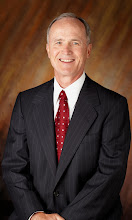- Why? (pay attention to this behavioral economics stuff anyway)
In reading Justin Fox's The Myth of the Rational Market, I ran across several passages which are in part humorous and taken together make a great point for me. Chapter 11 begins:
In the spring of 1979, just after the publication of their "Prospect Theory” article, Daniel Kahneman and Amos Tversky visited Richard Thaler at the University of Rochester. Thaler arranged a dinner for his guests and, somewhat mischievously, seated Tversky next to efficient markets apostle Michael Jensen [of the Jensen index or "Alpha"]. The exchange that resulted, recalled Thaler's Rochester colleague Hersh Shefrin, who was also at the table, “kind of set the tone for the debate over the next fifteen years.
The psychologist could not resist springing one of his quizzes on the finance professor. Tversky asked Jensen to describe how his wife made decisions. Jensen regaled him with tales of her irrational behavior. Tversky asked Jensen what he thought of President Jimmy Carter. An idiot, Jensen said. And what about the policies of the Federal Reserve chairman? All wrong. Tversky continued listing decision makers of various sorts, all of whom Jensen found wanting. “Let me see if I've got this straight,” Tversky finally said. “When we talk about individuals, especially policy makers, they all make major errors in their decisions. But in the aggregate, they all get it right?
Jensen's response was [according to those present - but not Jensen] ' Well Amos, you just don't understand.' Errors and irrationalities of the sort Tversky asked about simply didn't matter. It was the market as a whole that got things right, not its individual participants.
At page 289 the author continues:
When it came to the study of individuals and the decisions they make, this behaviorist updating of equations was an unalloyed success. Most economists and finance scholars had never disputed that people sometimes made weird choices. The issue was that finance professors in particular could not see why it mattered. They studied prices not people.
The book goes on to state that this priority had to be modified. In the 1970s most pensions were defined benefit plans. The investments in those plans were made by professional fund managers without the input or even knowledge of the pension beneficiaries. With the enactment of ERISA, the death of the defined benefit plan and most importantly the rise (to virtual exclusivity) of the 401(k), all of us including our clients were thrown (whether we liked it or not) into the investment arena.
This shift meant that individuals were now in charge of their own financial destinies, including tax deferred and non tax deferred assets.
Mr. Fox continues on page 289 to state what may be obvious but immensely important:
“It [individual assumption of control over their financial destiny] also opened up a staggering new set of opportunities for poor financial decisions.”
My point:
Even finance professors from the “Chicago” school of finance acknowledge that individuals can and often do make poor financial decisions. The professors deal with markets and prices and not with individual lives.
You do.
In managing your risk you may wish to consider how you are going to deal with the aspects of human nature our psychologist friends are pointing out to us. I will have more to say on how you might later.
For those of you in the dispute resolution business, an examination of these same aspects of human nature may present entirely new and different explanations for what transpired or perhaps shed some light on what operative facts actually transpired.
-11/13/2009





No comments:
Post a Comment